| Every four years, we add a day to the year to synchronise our calendar with the Earth’s revolution around the sun because, as climate activist and Canadian author, Naomi Klein, says “it’s easier to change our human systems than to change the laws of nature”. In the Leap Day edition of the Irish Examiner, I explain how the same can be said for addressing climate change and how Ireland and the rest of the world are calling for a leap away from fossil fuels in 2016. Read more here. |
My viewpoint in today's Irish Examiner: How leap year 2016 marks a leap into a fossil-free future!2/29/2016
0 Comments
 Journal.ie Journal.ie
It’s the final week of General Election 2016 (#GE16) and at this stage, most of us can’t wait for it to be over. It’s hard to advance climate action when the Dail is dissolved and you don’t know what kind of government you’ll be dealing with in the future. At least the “quiet time” allowed me to trudge through political party manifestos to anticipate what kind of battles we might face in the next government with respect to climate.
To save you the pain and suffering of reading 665 pages to figure out where the political parties really stand on climate action, I’ve posted my entire analysis below both by party and by topic. I've also included my own personal ranking on how the parties measure up (biased as it may be). Happy GE16 – This Friday! Disclaimer: This is a volunteer, individual effort that does not reflect any organisation in any way. It may be an incomplete analysis due to limited time and resources. Feel free to email me suggestions if I neglected to include something related to climate and I’ll consider updating this post. Update: New material added in red based on candidates responses to Friends of the Earth six questions to ask your candidate: here No time to read? Watch my three-minute summary of where the parties stand on climate below: First, the light stuff… How much does climate change feature in GE16 manifestos?
Now, some analysis by political party with respect to climate...
|
|
I’m a former Green Party member and their policies on climate action in line with scientific evidence were a key driver of my past support. So, it’s no surprise that when I scored the manifestos for climate action, the Green Party’s came out light-years above the rest. They have more specific, quantifiable measures and deadlines to be able to evaluate whether their promises would actually reduce greenhouse gas emissions. However, since the Green Party candidate in my constituency is unlikely to get elected, my number 2 and number 3 votes are actually important in our preferential voting system. Based on climate action within the manifestos (but not necessarily the only issues I will vote on), here’s how the political parties scored in my humble opinion:
|
Cara’s scoring for climate commitment based on political party manifestos:
GP (111) > LB (52) > SD (50) > FF (33) > FG (15) > RN (14) > SF (11) > PBP (5)
GP (111) > LB (52) > SD (50) > FF (33) > FG (15) > RN (14) > SF (11) > PBP (5)
Finally, more details on specific climate-related topics within the manifestos for the brave at heart...
On Energy: FG prioritises energy efficiency in public sector, lower prices for consumers, and implementation of the Energy White Paper. With respect to renewables, FG prioritises price supports and community ownership but plan to “balance” renewable energy development with protection of local communities and indigenous energy generation. LB is committed to decarbonisation, funding energy efficiency, renewables, network infrastructure, strengthening building regulations and creating an Energy Efficiency Obligation Scheme. With respect to renewables, LB will accelerate decarbonisation by encouraging development of capacity, funding sources, and research. FF focused on reducing cost and achieving “balanced mix” of energy sources. With respect to renewables, FF wants to diversify sources. GP plan to fully decarbonise energy system by 2050, using renewable and gas in interim and advocate for extensive national dialogue on options. PBP makes vague reference to more job creation in sector and commitment to invest in renewables. RN wants to reduce dependence on imported energy, diversify, and encourage responsible energy use in tourism. For renewables, RN wants afforestation/biomass and solar, not wind. SD will eventually phase out fossil fuels and want smart grid infrastructure. For renewables, SD emphasise farm based production, favour subsidies, and encourage home microgeneration pilot schemes. SF has no energy policy but in response to Friends of the Earth, Sinn Fein supported "the phasing out of Ireland’s remaining power stations that burn fossil fuels such as peat and coal... [through] maximising the use of renewable energy sources without over relying on wind energy, and proposed that the next government to bring the Geothermal Energy Development Bill before the Dáil.
- On Oil/Gas: FG supports oil/gas exploration. LB says oil and gas exploration will be “gradually curtailed”. SF wants staged tax measures. GP wants to end licensing for exploration. PBP wants public ownership and ring-fencing. No reference to oil/gas by FF.
- On Fossil Fuels: FG supports decreasing dependence on foreign fossil fuels through renewable energy development. GP wants to stop purchasing fossil fuel imports and switch to renewable energy system. RN also wants to remove dependency on imports and reduce emissions to improve air quality in cities. SD want lower prices for businesses in light of falling oil prices but also want to phase out subsidies. PBP doesn’t mention fossil fuels.
- On Fracking: FG will delay decision until EPA study is complete. LB, SF, GP, RN, and PBP are opposed to fracking. No mention of fracking by FF or SD though FF committed to ban it in a pledge to Friends of the Earth Ireland.
- On Wind: FG will update wind planning regulations within 6 months. LB plans to diversify away from wind and says it’s not suitable for every location. FF wants a full economic review of wind energy sector. SF will develop a Wind Turbine Regulation Bill. GP want 15% community ownership of wind energy projects. RN doesn’t support wind without improvement in economy of scale. SD want a new approach to wind, including farm microgeneration projects, offshore development, and community ownership. No mention of wind by PBP.
- On Solar: LB will incentivise solar uptake. FF will explore solar as an additional energy source. SF advocates a feed in tariff for solar and in response to Friends of the Earth, proposed that the government maintain and increase grants for householders to incentivise converting their homes for solar technology into the future. GP wants extensive roll out of solar, including support for communities to sell back to grid, solar panels on public buildings, and an auction process for farmers. RN wants to increase solar energy and would consider third party country purchase. RN also wants to include solar on current and future houses and put a price on solar to sell back to grid. SD’s mention solar as part of overall renewable energy strategy but have no specific policies on solar. In a response to Friends of the Earth on this question, the Social Democrats stated their position is "that electricity suppliers should be encouraged to expand home micro-generation pilot schemes, covering wind, photovoltaic and combined heat and power". FG and PBP fail to mention solar in their manifestos, though in a response to Friends of the Earth, PBP said they agreed with putting a price on solar.
- On Biomass: FG says indigenous biomass will play significant role in peat-plant co-firing. LB will incentivise uptake. FF will explore biomass as an additional energy source. GP mentions forestry as a source of biomass. RN wants to increase biomass sector through forestry for domestic heating. No mention of biomass by SF or PBP but in response to Friends of the Earth, SF said it would work with Coillte and Bord na Mona to develop a viable and sustainable biomass industry in Ireland.
- On Off Shore renewables: FG and LB support research into off shore renewables. GP wants extensive roll out of off shore wind. RN wants to develop tidal energy, which is still in R&D phase. SD wants Ireland to be leader in ocean energy and establish an offshore wind development agency. No mention of off shore energy by FF, SF or PBP.
- On peat: FG commits to a National Peatlands Strategy with a focus on peatlands as tourism destinations, but at the same time plans to keep peat-burning power stations running by co-firing with increasing amounts of biomass. SF only mention peat by supporting turbary rights to extract. RN want to reduce household peat burning to improve air quality. GP commit to closing the peat-burning power stations within the next government. SD want continued conversion of peat plants to co-fired biomass with full elimination target. In a response to Friends of the Earth on this question, the Social Democrats proposed "to phase out state subsidies for carbon-intense electricity generation, favour subsidisation of renewables where appropriate, continue the conversion of peat-burning electricity plants to co-fired biomass, set an achievable target to eliminate peat burning, and replace peat burning with domestically produced biomass where possible." LB, FF, and PBP don’t mention peatlands or peat-burning.
- On Community-ownership: Community-owned energy doesn’t feature in FG or RN manifestos. LB puts communities at centre of decisions and will encourage grid access and energy efficiency projects based on the Energy White Paper chapter “From Passive Consumer to Active Citizen”. FF emphasises community energy projects and ownership and in response to Friends of the Earth supported introducing a new community share options scheme on proposed wind farms where the local community must be given the option of purchasing a minimum of 20% ownership of wind farms in their area. SF supports a dedicated route for community projects to national energy grid, but when asked by Friends of the Earth if they supported 20% community ownership of development led projects, they had "no specific policy with regard to this item. On its face, it appears to have merit, however, I would need much more information about how it has been implemented in Denmark, and especially what might have been any unintended consequences". GP call for a cooperative ownership model for energy with at least 15% community-owned wind. PBP wants to establish community energy projects on unused Coilte land and in a response to Friends of the Earth on community co-ownership stated that they favour an entirely publicly owned system of major energy projects and therefore "on [their] watch developer led projects would not arise in the first place. SD want community involved wind planning, a rebalance of ownership and community energy coops. In a response to Friends of the Earth, SD said "we need to enhance supports for home energy retrofit (including a Pay-As-You-Save scheme) and work with Local Authorities to enhance Community Energy Schemes and Cooperatives, drawing on the Haringey model utilised in London and on our Smart Cities policy... We must rebalance the ownership model of such projects towards local communities where possible. We have adopted a formal policy position that endorses a Danish or German model-led approach to community ownership so that local communities benefit most and have the final say on the scale of proposed developments".
- On Moneypoint: LB will replace coal at Moneypoint power station with low-carbon technology by 2025. GP will close Moneypoint in next government. FG, FF, SF, PBP, RN, and SD don’t have policies on Moneypoint, but in response to Friends of the Earth, SF said it would investigate converting Moneypoint into a biomass power station.
On Agriculture: FG plans to balance emissions with sustainable development of the rural economy. They plan to explore energy crop development and locally led agri-environment schemes with respect to agriculture’s contribution to climate action. LB does not say anything with respect to climate and agriculture and FF says it will remove “green tape”, when environmental issues create obstacles to agri-business. SF only mentions being opposed to TTIP and CAP simplification. GP have many tangible suggestions to aspire to carbon neutral agriculture by 2050, including local food production systems, poly-cultural grazing to reduce livestock emissions, local food procurement policies, a national soil strategy, a Zero food waste policy, a solar panel auction process for farmers, and anaerobic digestion of farm wastes. PBP makes vague reference to more job creation in sector. RN doesn’t reference climate in sector, but suggests return of beet industry. SD mention climate as threat to farming and encourages microgeneration pilot projects on farms.
- On Forestry: FG plans to add 6,000ha forestry in first year of government, increasing to 8.3k ha by 2020. LB plans to expand forestry by 43,000 ha (no timelines). GP plans to increase forestry by 15,000 ha per annum by 2030 with 30k subsidies and increase native, continuous cover woodlands. PBP makes vague reference to more job creation in sector. RN wants to expand to 20% for energy production. SD want greater forestry uptake for carbon sequestration and biomass production. No mention of forestry by FF or SF.
- On Food Wise 2025 ambition: FG will prioritise full implementation. FF will full realise Food Harvest 2020 and Food Wise 2025 (FW2025). SF doesn’t mention in manifesto but at Environment Hustings, Lynn Boylan said they supported herd expansion. No mention of FW2025 in GP or PBP manifesto, but they both rejected herd expansion at environment hustings. There was also no mention of FW2025 by LB, RN or SD.
On Transport: FG says the future National Mitigation Plan will reveal plans to reduce emissions and energy efficiency in sector. LB will establish a target in 2016 to increase number of compressed natural gas (CNG) filling stations, a dubious transition fuel that could inhibit renewable development. GP plan to fully decarbonise transport by 2050 and strengthen NTA role in planning and expedite NTA city plans. RN emphasises more road development and wants development of Western Corridor. SD plan to shift from carbon intensive transport but also build new road infrastructure between Cork, Limerick, and Galway. SF and PBP have no transport policies, though PBP wants to cut bus fares to encourage people out of cars.
- On Electric Vehicles: FG will establish a task force on E-Cars within 6 months. LB will increase grants to incentivise. FF will expand EV uptake to 10% in five years and proposes four incentives to increase uptake, including waiving motor tax, tolls, free charge points, and SEAI grants. GP plan to increase charge points for EVs. SD want EV incentives and subsidies including those for domestic charging points and more national fast charge points. No mention of EVs by RN, PBP, or SF.
- On Aviation: GP wants to add aviation to Emissions Trading System. RN wants to incentivise aviation. No mention of aviation by other parties.
- On Public Transport: FG refers to investment in greenways as specific carbon reduction measure. LB plans a Green Bus Fund, New Rail Strategy including energy efficiency, and possibility of exploring electrification of inner-city rail. LB also plans to bring Metro North plans forward to 2021. FF refers to the need to curb emissions from public transport and need for better public transport in cities. GP proposes orbital bus routes, more park and ride facilities, and greater rail investment. SD want to restore subsidies on fares, balance public transport spending with roads spending, build DART underground, improve reliability, and develop more light rail/tram. RN and SF have no public transport policies.
- On Cycling: FG refers to cycling only as part of enhanced blueways and activity-based tourism. LB proposes a Dublin city cycle system and Cycle-to-School scheme. FF proposes a National Cycle Way Strategy and EUR 2 million for GreenWays. GP allocates 10% transport budget to improving cycling routes. SD want to enhance cycling infrastructure and greenways. SF, PBP, and RN don’t mention cycling.
On Housing: FG will continue Better Energy Programme grants. LB will strengthen residential building regulations with focus on heat, light and grants for energy efficiency. LB will also increase investment in warmer homes scheme, widen applicant base, and encourage deep retrofit. FF refers to a Green Deal and increasing retrofit. SF will invest in retrofit and extend warmer homes scheme. GP encourages passive housing standards, switching oil to heat pump and wood fired heating by expanding warmer home schemes by Eur 10 million per annum, the addition of a deep retrofit scheme, and higher density urban housing designs. PBP will promote a national housing insulation programme to reduce energy consumption. RN wants to retrofit housing with solar panels and include in all new planning applications. SD want a home energy retrofit programme and Pay-As-You-Save scheme.
- On fuel poverty: FG will protect the warmer homes scheme and develop an energy poverty strategy with a focus on enhanced insulation. LB will implement the Affordable Energy Strategy and increase supports for fuel poverty. SF support retrofitting investment. No mention of fuel poverty by FF, GP, PBP, RN, SD.
On Migration: FG refers to a need for a balanced migration policy and immigration bill. LB plans to implement a National Integration Strategy for migrants. FF refers to worsening of migrant crisis due to climate change. GP acknowledges link to climate change and advocates greater asylum rights for those fleeing environmental disaster. SF, PBP, RN, and SD don’t mention migration.
On Green Climate Fund: FG says it will increase in coming years but doesn’t say how much. FF will increase contribution to 13 million. No mention of GCF by other parties.
On Governance: FG says that a long-term economic planning unit will include climate change, energy and environment. FF suggests Dept. of Climate Change including environment, flood defence, energy, transport, natural resources and heritage. GP want to strengthen emission reduction targets. SD want to reform climate action regime with domestic targets, mitigation measures, enhanced climate advisory council powers, and appropriate reduction targets to all sectors.
On Infrastructure: LB plans a Green Infrastructure Fund and carbon neutral cities. FF wants a long-term (25yr) National Infrastructure Commission with a decarbonisation mandate. GP wants traffic free “Proud cities”. PBP says they will invest in public infrastructure. SD want Smart Cities with rapid urbanisation. No mention of infrastructure by SF or PBP.
On Green Climate Fund: FG says it will increase in coming years but doesn’t say how much. FF will increase contribution to 13 million. No mention of GCF by other parties.
On Governance: FG says that a long-term economic planning unit will include climate change, energy and environment. FF suggests Dept. of Climate Change including environment, flood defence, energy, transport, natural resources and heritage. GP want to strengthen emission reduction targets. SD want to reform climate action regime with domestic targets, mitigation measures, enhanced climate advisory council powers, and appropriate reduction targets to all sectors.
On Infrastructure: LB plans a Green Infrastructure Fund and carbon neutral cities. FF wants a long-term (25yr) National Infrastructure Commission with a decarbonisation mandate. GP wants traffic free “Proud cities”. PBP says they will invest in public infrastructure. SD want Smart Cities with rapid urbanisation. No mention of infrastructure by SF or PBP.

If you got this far, you can call yourself a truly informed voter! Congratulations and Happy GE16!
This was a mountain of (volunteer) work, so shares and retweets greatly appreciated before #GE16.
Keep fighting the good fight!
-Cara
This was a mountain of (volunteer) work, so shares and retweets greatly appreciated before #GE16.
Keep fighting the good fight!
-Cara
| As I began to write my Climate Friday FAQ this week on General Election 2016 and the need to keep a green voice in politics, it struck me that this message needed to go out to as wide an audience as possible. So instead of posting my opinion on this site as usual, this week I'm writing in the Irish Independent. Check it out: 'This election is make or break for the Green Party'. Happy Friday and happy voting in GE16! |
This blog is based on my presentation on Policy and Action for the Irish Bioenergy Association’s annual conference on February 3rd, 2016.
"Back in my day..."
| My post-doctoral research at University College Dublin from 2007-2011 was focused on the bioenergy sector. It was all the rage, with plenty of funding available for research that could inform Ireland’s agricultural sector in making the transition to bioenergy production to meet the EU Renewable Energy Directive. |
Along the way, I realised that nobody had bothered to consult the farmers of Ireland on whether they were actually interested growing energy crops so, with no budget but some generous media support from the Farmers’ Journal and the Irish Independent, I undertook a bit of qualitative research on ‘Farmers’ Perspectives for the development of a bioenergy industry in Ireland’ (Global Change Biology Bioenergy, 2012).
One might expect and hope that with five years since the time I surveyed Irish farmers, the status of the industry and the opinions of farmers back then would be out of date at this stage, but unfortunately, their opinions are still relevant today: Among the 172 farmers surveyed across Ireland in 2011, lack of a guaranteed market was considered the greatest obstacle to energy crop production. Other significant obstacles identified by farmers included inadequate or unknown profit margin (58%); no long-term guarantees (54%); investment costs (51%); lack of advice or expertise (37%); insufficient infrastructure (35%); and legislation or regulations (32%).
Has anything changed?
| Only a year ago, the Irish Times reported that policy changes were still needed for bioenergy projects to proceed in Ireland, and a Coillte representative stated there is “absolutely no chance whatsoever we’re going to reach our heat target in the Renewable Energy Directive by 2020.” At the same time, Teagasc reported a significant cut in bioenergy research funding and that farmers who had planted miscanthus were now ploughing up their fields in resignation or committing to supply digesters in Northern Ireland - lost opportunities for Ireland’s efforts to meet renewable targets. |
These “darker days” of bioenergy have made it difficult for the sector to grow in Ireland, but finally, we have an Energy White Paper setting a vision of a 100% renewable energy system and a draft Bioenergy Plan with a commitment to introduce a Renewable Energy Heat Incentive. The recent Energy White Paper shows we’re still a long way from achieving all of our 2020 targets set out in the Renewable Energy Directive. However, the Paris Climate Agreement and Ireland’s own Climate Action and Low Carbon Development Act now require the Government to make National Climate Mitigation plans to aggressively reduce emissions. While the last five years have been a case of “kicking the can down the road”, these new tools provide more assurance that the 32nd Dail will be forced to act more swiftly in supporting the Irish bioenergy sector.
The wider implications on growth of the Irish bioenergy sector
Let’s be cautiously optimistic that the right incentives and support could be enacted over the next few years to finally enable the Irish bioenergy industry to help meet Ireland’s EU and international commitments. The primary reason we have these renewable energy targets is to do our fair share to move away from fossil fuels in an effort to address climate change, but it’s important to remember that as every new industry grows, it brings its own share of impacts. There are a few issues I’d like to highlight regarding the wider implications of the growth of the bioenergy sector in Ireland in the hope that they’ll be considered as the sector grows:
1. Bioenergy solves one problem, but can’t afford to cause others: As with any industry, there are potential negative environmental impacts associated with bioenergy production, which can include biodiversity loss, land use change, and impacts on water, soil and air quality from unsustainable intensification of agriculture and forestry practices. For example, in Germany, high nature value grasslands and drained peat lands have been converted to maize cultivation to produce biogas causing both greenhouse gas emissions higher than those resulting from some fossil-based energy sources and declining biodiversity. We risk similar problems here in Ireland when we drain wetlands and bogs for conversion to crop or forestry land. The bioenergy sector must develop within the context of Ireland's commitment to halting biodiversity loss in the Convention on Biodiversity and other commitments to maintain our ecosystem services and natural capital.
2. Bioenergy is part of the solution to a global problem. It’s great to have national targets to give confidence to the bioenergy sector, but ultimately, we need to be mindful of the sector’s primary role in solving a global problem. Whatever we do here in an effort to increase our bioenergy production needs to ensure it doesn’t create more problems elsewhere on the globe. Specifically, I’m referring to the impact of importing biomass such as palm kernels from Malaysia and cocoa husks from Nigeria at our peat burning power plants. These imported biomass feedstocks create additional greenhouse gas emissions from their transport and have no local community benefits for Ireland. Other imported biomass products, such as wood exports from Brazil and Africa, put additional pressure on deforestation and/or drainage of peatlands and contribute to land-grabbing and competition with food production in these countries. Faraway environmental and social impacts are no less real than if they were happening here at home.
3. Bioenergy has its own carbon footprint. The carbon neutrality of bioenergy cannot be assumed, but so far all EU efforts to mitigate climate change are based on this false assumption. With the Paris Agreement about to be ratified, the EU will not be able to guarantee effective carbon emission reductions unless the full carbon footprint of bioenergy is accounted for. Increasing use of forest biomass for energy production requires more logging which reduces in carbon stocks and carbon sequestration. Land use change can also impact the carbon footprint of bioenergy production. The European Commission and European Parliament have already called for the inclusion of indirect land use change in the carbon accounting for biofuels from 2021. Similar carbon accounting requirements could be included from land use change for sustainable bioenergy policy as well.
4. Bioenergy competes with food security. There will always be the dual challenge of land competition between biomass for energy or for food. The EU wants to concentrate on developing biofuels that require less energy and land, such as algae or wastes. This is part of the overall move toward a circular economy where the waste from one industry is used as fuel for the next. Bioenergy technology needs to incorporate this philosophy of cascading design into their plans. This means biomass should be used to create materials and products first, and the energy content recovered after.
5. All bioenergy crops are at the mercy of our changing climate. The floods last month demonstrated how beef and dairy farming will become increasingly difficult in parts of Ireland. In the face of climate risk, farmers need to consider diversifying their income sources to protect against a changing climate. Bioenergy crops will also face new climate risks, and monoculture farming or forestry will not be a good strategy to protect against those risks. We need to see bioenergy farmers or foresters as both contributors to the renewable energy transition and as stewards of our environment and natural capital conservationists. Possibly, they will become our first flood defenders as they have in the Pontbren project in Wales, where upland sheep farmers are also planting mixed native forestry that could reduce downstream flood waters by up to 50% and support biodiversity. We can no longer expect farmers to rely on a single source of income off a product that could be destroyed by inclement weather. In the face of future climate change, that risk is real whether farmers produce beef, dairy, or biomass and we need diverse farming systems to prepare for that risk.
What to expect for our fuels of the future
To avoid negative environmental and socioeconomic impacts both domestically and globally, the expansion of bioenergy production needs to be accompanied by regulations that ensure genuine sustainability. Nationally, we should expect to see a greater emphasis on policy coherence for development. Our climate mitigation plans and bioenergy policies will come under examination for how they impact our Irish Aid efforts. Policies that have demonstrably negative impacts on developing countries will have to be altered.
At the EU level, the Commission has recognised that an improved biomass policy will also be necessary as part of the EU’s 2030 Climate and Energy Framework. An EU renewable energy package, including a bioenergy sustainability policy for both biomass and biofuels, will be proposed between 2015 and 2017. Understandably, this could limit the role that bioenergy can play in efforts toward full decarbonisation. We simply don’t have the available land for 100% of our renewable energy to be provided entirely by biomass, and the EU is already moving toward a cap on biofuels for transport use for similar reasons.
As part of a sustainable bioenergy policy, it is also possible that the EU will encourage increasingly decentralised energy systems, involving smaller scale, local energy projects with benefits for local communities and rural development. While large scale industrial use of biomass could be discouraged as an inefficient use of biomass resources with little in the way of local, community benefits.
The Paris Agreement has renewed investor confidence in all forms of renewable energy including bioenergy, and I look forward to finally seeing the sector grow from the time when I worked in it. However, as with any sector that reaches maturity, we can expect bioenergy to be subject to closer public scrutiny and environmental regulation as it develops.
We’ve seen how the wind energy sector lost so much ground in Ireland by failing to anticipate public resentment and address potential negative impacts early enough. It is my hope that some of the potential issues above will be addressed and resolved at this early stage in the growth of the Irish bioenergy sector, so that our bioenergy industry can adopt genuinely sustainable practices now rather than having to address them further down the road when solutions become more costly and difficult to implement.
At the EU level, the Commission has recognised that an improved biomass policy will also be necessary as part of the EU’s 2030 Climate and Energy Framework. An EU renewable energy package, including a bioenergy sustainability policy for both biomass and biofuels, will be proposed between 2015 and 2017. Understandably, this could limit the role that bioenergy can play in efforts toward full decarbonisation. We simply don’t have the available land for 100% of our renewable energy to be provided entirely by biomass, and the EU is already moving toward a cap on biofuels for transport use for similar reasons.
As part of a sustainable bioenergy policy, it is also possible that the EU will encourage increasingly decentralised energy systems, involving smaller scale, local energy projects with benefits for local communities and rural development. While large scale industrial use of biomass could be discouraged as an inefficient use of biomass resources with little in the way of local, community benefits.
The Paris Agreement has renewed investor confidence in all forms of renewable energy including bioenergy, and I look forward to finally seeing the sector grow from the time when I worked in it. However, as with any sector that reaches maturity, we can expect bioenergy to be subject to closer public scrutiny and environmental regulation as it develops.
We’ve seen how the wind energy sector lost so much ground in Ireland by failing to anticipate public resentment and address potential negative impacts early enough. It is my hope that some of the potential issues above will be addressed and resolved at this early stage in the growth of the Irish bioenergy sector, so that our bioenergy industry can adopt genuinely sustainable practices now rather than having to address them further down the road when solutions become more costly and difficult to implement.
| Listen to Cara's chat with RTE's Marty Morrissey and Bio XL's Tom Bruton on biomass, bioenergy and peat in the January 30th broadcast: Biomass - The Confessional. |
Archives
December 2021
September 2019
October 2018
February 2018
January 2018
September 2017
May 2017
March 2017
February 2017
January 2017
December 2016
November 2016
October 2016
September 2016
August 2016
July 2016
June 2016
April 2016
March 2016
February 2016
January 2016
December 2015
November 2015
October 2015
September 2015
June 2015
April 2015
March 2015
February 2015
January 2015
December 2014
September 2014
May 2014
April 2014
February 2014
January 2014
Categories
All
Elections
Electoral_registar
Green
Vote



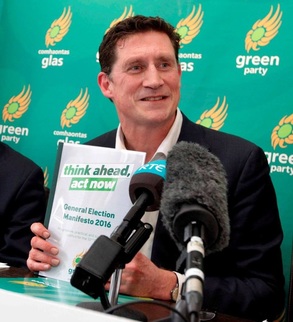
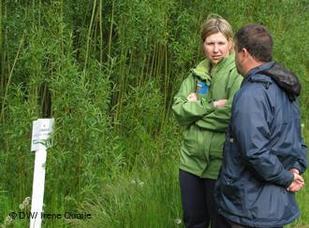
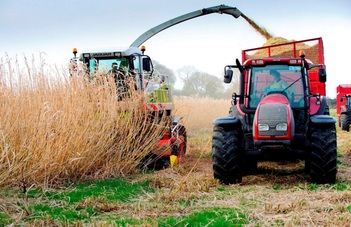
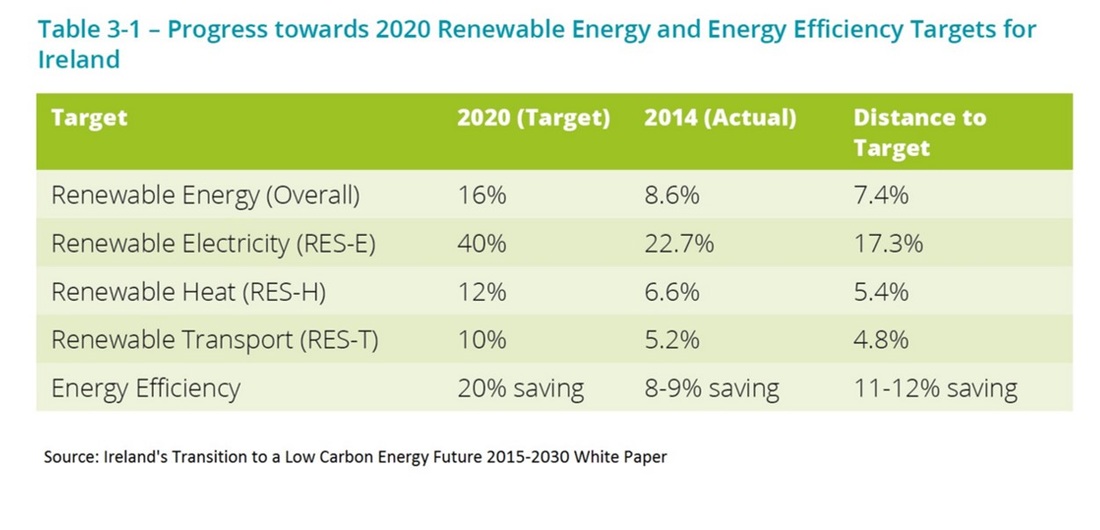

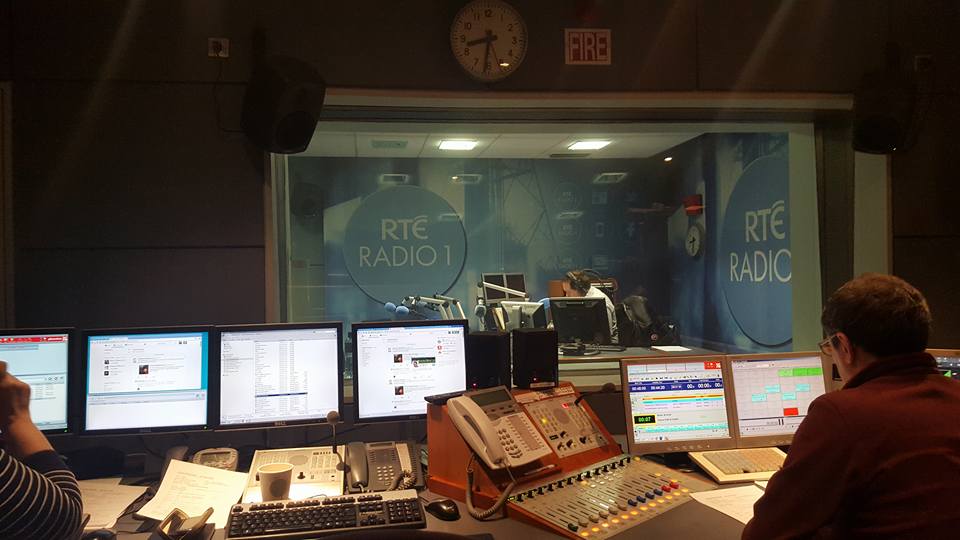
 RSS Feed
RSS Feed
